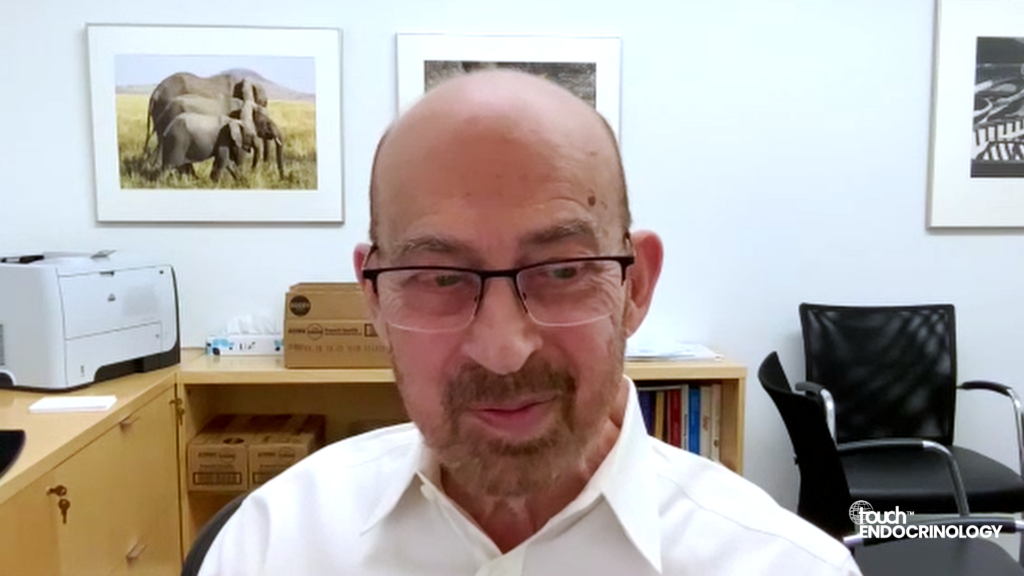Type 1 diabetes (T1D) is an autoimmune disease caused by the pathogenic action of T lymphocytes on insulin-producing beta cells, which often begins 3 to 5 years before the onset of clinical symptoms.1 Despite almost 100 years of insulin treatment for the symptoms of T1D, until recently there were no therapies to treat the underlying cause of the disease.2 Type 1 Diabetes TrialNet is a National Institutes of Health-funded and Juvenile Diabetes Research Foundation-supported international clinical trials network that was established in 2001 and aims to develop disease-modifying therapies for the prevention and treatment of T1D that will prevent the autoimmune destruction of beta cells in patients with T1D without the need for continuous immune suppression.3 TrialNet is an international collaborative endeavour involving 25 clinical centres and hundreds of affiliate sites in the USA, Canada, UK, Sweden, Finland, Germany, Italy, Australia and New Zealand. It recruits around 15,000 research subjects per year and, to date, has tested over 180,000 relatives of people with T1D for the presence of islet autoantibodies.3
The mechanisms responsible for the destruction of beta cells involve cytotoxic T cells as well as soluble T-cell products, such as interferon-gamma and tumour necrosis factor alpha.4 Increased understanding of these mechanisms led to the investigation of immunosuppressive drugs in the treatment of T1D, but the use of these agents is limited by their toxicity and the need for continuous use in a young, otherwise healthy, population.5
Teplizumab is an anti-CD3 monoclonal antibody that does not bind to the Fc receptor, and therefore interferes in the autoimmune attack of pancreatic beta cells without excess toxicity.6 Teplizumab lessens the deterioration in insulin production and improves metabolic control in the majority of patients with new onset T1D, as well as preserving C-peptide levels, but the effects started to wane after 1 year.6 This led to the suggestion that teplizumab can affect the immune process that causes the destruction of insulin-secreting beta cells in the pancreas during the prediabetic state and thereby prevents or delays the onset of T1D.
One of the most highly anticipated presentations at the 79th Scientific Sessions of the American Diabetes Association (ADA), which was held from 7 to 11 June 2019, in San Francisco, CA, was the result of The TrialNet10 study (NCT01030861), a phase II study that aims to determine whether teplizumab can help to prevent or delay the onset of T1D in high-risk autoantibody-positive non-diabetic relatives of individuals with T1D. Inclusion criteria were aged 8–45 years (the majority were aged under 18 years), a first or second degree relative with T1D, an abnormal oral glucose tolerance test (OGTT), and the presence of at least two diabetes autoantibodies. T1D is approximately 15 times more common in family members of those with T1D;7 therefore this is a useful patient population for prevention studies. Participants were recruited from the database of TrialNet’s Pathway to Prevention study (https://www.trialnet.org/our-research/risk-screening).
The study involved 76 individuals who were randomly assigned to a single 14-day course of teplizumab (n=44) or placebo (n=32) with daily, 30-minute intravenous drug infusions at TrialNet Clinical Centers. Follow-up for progression to T1D was performed using oral glucose-tolerance tests at 6-month intervals. Results were simultaneously published in the New England Journal of Medicine8 and showed that teplizumab reduced the risk of developing T1D by 59% (adjusted HR 0.41, 95% CI, 0.22–0.78, p=0.006). The median time to the diagnosis of T1D was 48.4 months in the teplizumab group and 24.4 months in the placebo group. The disease was diagnosed in 43% of the participants who received teplizumab and in 72% of those who received placebo; the annualised rates of diagnosis of T1D were 14.9% per year in the teplizumab group and 35.9% per year in the placebo group. The effects of the drug were greatest in the first year after it was given, when 41% of participants developed clinical T1D, mainly in the placebo group. These findings remained significant even after adjustment for age, the baseline oral glucose tolerance test, and the presence of anti-GAD65 antibody, which is considered a useful biomarker for the development of T1D.8,9
In a subgroup analysis, certain human leukocyte antigen (HLA) serotypes and autoantibodies were associated with a greater response to teplizumab in preventing T1D. These included the presence of HLA-DR4 (HR 0.20; 95% CI, 0.09–0.45); the absence of HLA-DR3 (HR 0.18; 95% CI, 0.07–0.45); and the absence of anti-ZnT8 antibodies (HR 0.07; 95% CI, 0.02–0.26).8
In terms of safety, there were 112 adverse events (AEs) in the treatment arm and 23 AEs in the placebo arm. Three-quarters (75%) of participants who received teplizumab experienced an AE relating to blood or bone marrow, such as transient lymphopenia. There was also an increased incidence of dermatologic AEs, such as rashes, with teplizumab compared with placebo (36% versus 3%).8 Both of these AEs are consistent with the known safety profile of teplizumab.6
In a press conference, Kevan Herold, MD, of Yale University in New Haven, CT, said: ‘This is the first trial that has met its clinical endpoint in delaying the onset of type 1 diabetes. The 2-year delay in diagnosis is clinically important. In light of the daily burden of disease management, any time without clinical diabetes has significance. And I think if you were to ask the families of any of the participants in this trial, or even the families of people with diabetes, they would reiterate this point. But it’s particularly an issue for children, who represent about three-quarters of the participants in our study’.10
In an accompanying editorial, Clifford Rosen, of the Maine Medical Center Research Institute in Scarborough, ME, and Julie Ingelfinger, of Massachusetts General Hospital in Boston, MA, described the results as striking but stressed that this study has not provided evidence that immune modulation is curative in T1D, but rather that it has the potential to modify the disease course.11
Limitations of the study included the small study population, their lack of ethnic diversity, and the fact that all participants were relatives of people with T1D, limiting the applicability of these findings to a broader population. Further study will be needed to establish long-term efficacy and safety; the optimum frequency and duration of treatments; and to further elucidate biomarkers identifying individuals most likely to respond to teplizumab. Nevertheless, this study is the first to show that clinical T1D can be delayed by 2 or more years among people who are at high risk. These results have important implications for young people who have relatives with T1D, as they may benefit from early screening and treatment.
<1>References
- Atkinson MA, Eisenbarth GS. Type 1 diabetes: new perspectives on disease pathogenesis and treatment. Lancet. 2001;358:221–9.
- Pharmacologic approaches to glycemic treatment: standards of medical care in diabetes-2019. Diabetes Care. 2019;42:S90–s102.
- Bingley PJ, Wherrett DK, Shultz A, et al. Type 1 diabetes TrialNet: a multifaceted approach to bringing disease-modifying therapy to clinical use in type 1 diabetes. Diabetes Care. 2018;41:653–61.
- Rabinovitch A, Suarez-Pinzon WL. Cytokines and their roles in pancreatic islet beta-cell destruction and insulin-dependent diabetes mellitus. Biochem Pharmacol. 1998;55:1139–49.
- Parving HH, Tarnow L, Nielsen FS, et al. Cyclosporine nephrotoxicity in type 1 diabetic patients. A 7-year follow-up study. Diabetes Care. 1999;22:478–83.
- Herold KC, Hagopian W, Auger JA, et al. Anti-CD3 monoclonal antibody in new-onset type 1 diabetes mellitus. N Engl J Med. 2002;346:1692–8.
- Hemminki K, Li X, Sundquist J, et al. Familial association between type 1 diabetes and other autoimmune and related diseases. Diabetologia. 2009;52:1820–8.
- Herold KC, Bundy BN, Long SA et al. An Anti-CD3 antibody, teplizumab, in relatives at risk for type 1 diabetes, New Engl J Med, 2019;DOI: 10.1056/NEJMoa1902226:.
- Towns R, Pietropaolo M. GAD65 autoantibodies and its role as biomarker of type 1 diabetes and latent autoimmune diabetes in adults (LADA). Drugs Future. 2011;36:847.
- Novel Anti-CD3 Antibody Delays Progression to T1D, https://wwwmedpagetodaycom/meetingcoverage/ada/80351 Accessed 10 June 2019.
- Rosen CJ, Ingelfinger JR. Traveling down the long road to type 1 diabetes mellitus prevention. N Engl J Med. 2019;DOI: 10.1056/NEJMe1907458:













